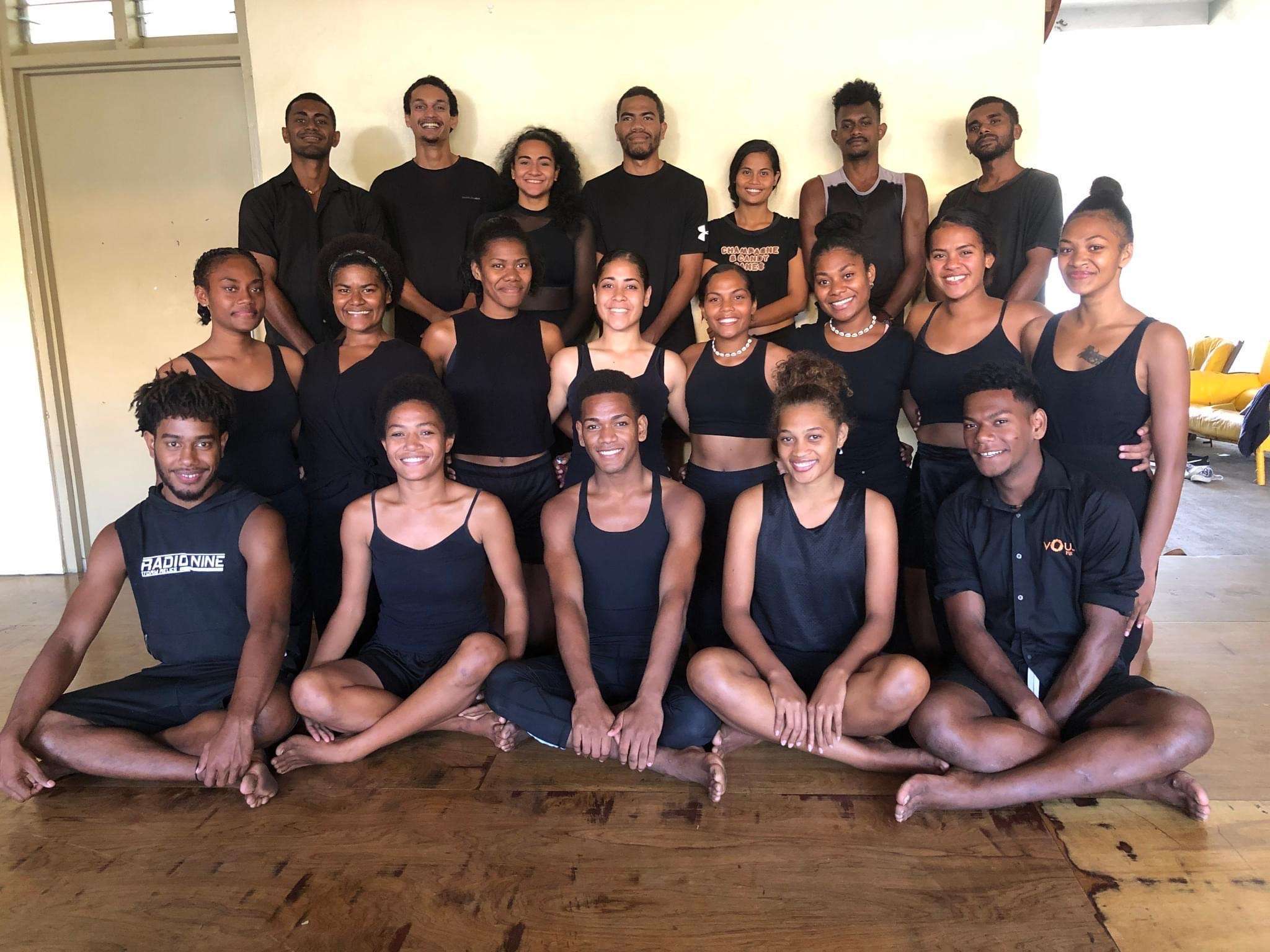
With support from the ACP-EU Culture Programme in the Pacific, the VOU Dance Company and Conservatory has been able to set up a 'training to employment' project for youth and women from disadvantaged Fijian communities.
In Fiji, the vibrant performances of the VOU Dance Company reflect the extraordinary richness of the traditions inherited from the Melanesian and Indian cultures of the archipelago. They are also part of its tourist circuit, thanks to a partnership signed by the company with the Shangri-La and Sofitel hotels.
But this cultural institution, a pioneer in the field of performing arts, is much more than a dance company. In addition to creating, producing, and presenting shows, VOU – which means "new" in the Fijian language – has a dance conservatory that offers a training programme affiliated with postgraduate studies at the university – a first in the country.
This small cultural enterprise was eligible for support ACP-EU Culture Programme, a culture support project implemented by DT Global that strengthens the sustainability of cultural and creative industries in African, Caribbean and Pacific (ACP) countries.
With this grant, Sachiko and Eddie Soro – founders of VOU Fiji – will be able to make their dream come true: to see their discipline recognised as a real profession and a vehicle for supporting Fiji’s productivity.
This programme will make a difference for around 100 young people and women who want to pursue a career in the performing arts. Firstly, it will enable 60 students from the conservatory to benefit from high-level dance training, supported by a scholarship. The conservatory teaches a wide range of styles, from jazz and ballet to traditional, urban, and contemporary dance. At the end of the two-year course, graduates will receive a diploma to give them access to the postgraduate level recognised by the Fiji Higher Education Commission. Finally, students will have the opportunity to move on to a professional career with the company at the end of their training. A further 40 positions will be available in administration and cultural project management.
A mobilisation campaign to select students, divided into three selection rounds, has already resulted in 20 new dancers in 2022. The second and third rounds will take place in early 2023 and in early 2024. To attract applicants, the dance troupe will perform on stage across Fiji, combined with awareness-raising workshops in various towns and villages across the archipelago.

The Fijian government is committed to promoting the cultural and artistic heritage of the archipelago, as well as the professionalization of the creative sector. However, there is still much to be done. "The arts are not part of the school curriculum. We want to contribute to the structuring and maturation of the industry, and influence government policies to create more employment opportunities in the creative sector," explains Sachiko.
Concerned with the preservation and enhancement of the archipelago’s traditional arts and identities, VOU has set up a research programme. Through study trips, students discover traditional stories, rituals, dances, and songs which they incorporate into their art.
One of the aims of this work is to foster intergenerational links in rural and remote communities. Many young people feel disconnected from their roots. Facilitating the transmission of artistic and cultural ideas between elders and young people has led to deeply creative projects. For example, Ratu, a 24-year-old student, was able to explore the role of the "daunivodou" – traditionally the creator of songs and music – who is the only person who can pass on the rituals and ceremonies inherent to each village. There are only 10 of them left in the country today.
"It is essential to ensure the safeguarding of cultural practices and traditions and to support innovation among future generations," says Frances Vaka’uta, Head of Culture at the Pacific Community, in charge of the ACP-EU Culture Hub for the Pacific. "These federative projects giving access to professions in the field of art and culture are unique levers to contribute in a significant and inclusive way to the economy of the countries of the region.”
In addition to strengthening bilateral cooperation between the EU and Fiji in the field of arts and culture, this programme could have a multiplier effect in the Pacific region. As a first step, Sachiko envisions extending the training programme to dancers from neighboring islands. At DT Global, we’re proud to support programming that both preserves tradition and offers meaningful employment pathways for youth in the region.